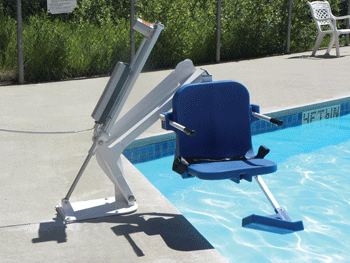 In the heated debate over the new ADA pool lift requirements the hospitality industry, which is the industry most affected, has argued that tort liability for misuse of the lifts is an important objection to their installation. Safety is important, of course, but this may be one case where liability is not a problem because ADA requirements preempt state law tort claims. The existing regulations requiring fixed lifts may reduce the risk of liability rather than increasing it.
In the heated debate over the new ADA pool lift requirements the hospitality industry, which is the industry most affected, has argued that tort liability for misuse of the lifts is an important objection to their installation. Safety is important, of course, but this may be one case where liability is not a problem because ADA requirements preempt state law tort claims. The existing regulations requiring fixed lifts may reduce the risk of liability rather than increasing it.
Federal preemption of state law claims has complexities enough to satisfy any law professor, but the Supreme Court has set out one very clear rule: “A holding of federal exclusion of state law is inescapable and requires no inquiry into congressional design where compliance with both federal and state regulations is a physical impossibility” Florida Lime and Avocado Growers v Paul. This rule seems to apply directly to tort claims arising out of misused pool lifts. The 2010 Accessibility Standards give hotels and other pool operators no choice about the installation of pool lifts for new construction and renovations. Older pools must have lifts installed only if this is “readily achievable,” but the price of pool lifts seems to fall well within the range of costs that courts routinely find reasonable. Pool lift manufacturers offer models they say can be installed almost anywhere, so location is also no objection. From a purely economic standpoint the cost of installing a lift is far below the cost of defending even one ADA lawsuit over what was “readily achievable.” More

